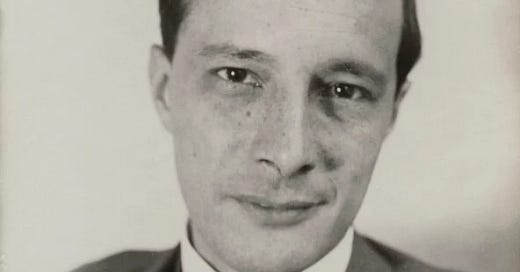Individualism creates mass men, not individuals
Michael Polanyi on the role of authority in genuinely liberal education; Tocqueville on the way democracy tends to produce an anti-culture that leaves us trapped in the present
Learning requires that a student place trust in a teacher, or in an authoritative text, without yet knowing if the trust is warranted. One has to trust that the teacher knows what he is talking about, or that the text contains riches that are not yet visible through a thicket of strangeness and obscurity (as is often the case with books written in another century).
The necessity of trust in education is not much appreciated because it doesn’t sit comfortably with our public creed of individualism. Individualism tacitly posits a kind of epistemic self-sufficiency that everyone has by default, or can achieve simply by following a clearly-stated method of reasoning (“critical thinking skills”), applied to “information” that is readily available. This flattens the hierarchical relationship between student and teacher, or between student and text, and such flattening is one instance of Americans’ fraught relationship to the idea of authority.
The paradoxical thesis I wish to consider is this: real independence of mind can be won only by a sustained process of submission to authority. There is a related paradox: a democratic society, precisely because it requires such independence of thought if it is to be something other than mob rule, requires education conducted with an aristocratic ethos.
Our best guide to these paradoxes in Michael Polanyi, a prominent physical chemist in the middle of the 20th century (and brother of Karl Polanyi, the economic thinker). He became interested in the process of scientific discovery as a philosophical problem, not least because his own experience of doing science did not match the account given by the logical positivists, who had the then-prevailing theory of how science works. He was also a refugee from both the Communists and the Nazis who at various points laid claim to his native Hungary. He saw that a misapprehension about the way scientific understanding progresses could have disastrous consequences, clearing the way for science to become subject to pressures of social utility and political ends. He saw as well that, like totalitarian regimes, liberal democracy also posed a threat to scientific learning and, by extension, to all transmission of knowledge and culture.
Keep reading with a 7-day free trial
Subscribe to Archedelia to keep reading this post and get 7 days of free access to the full post archives.




